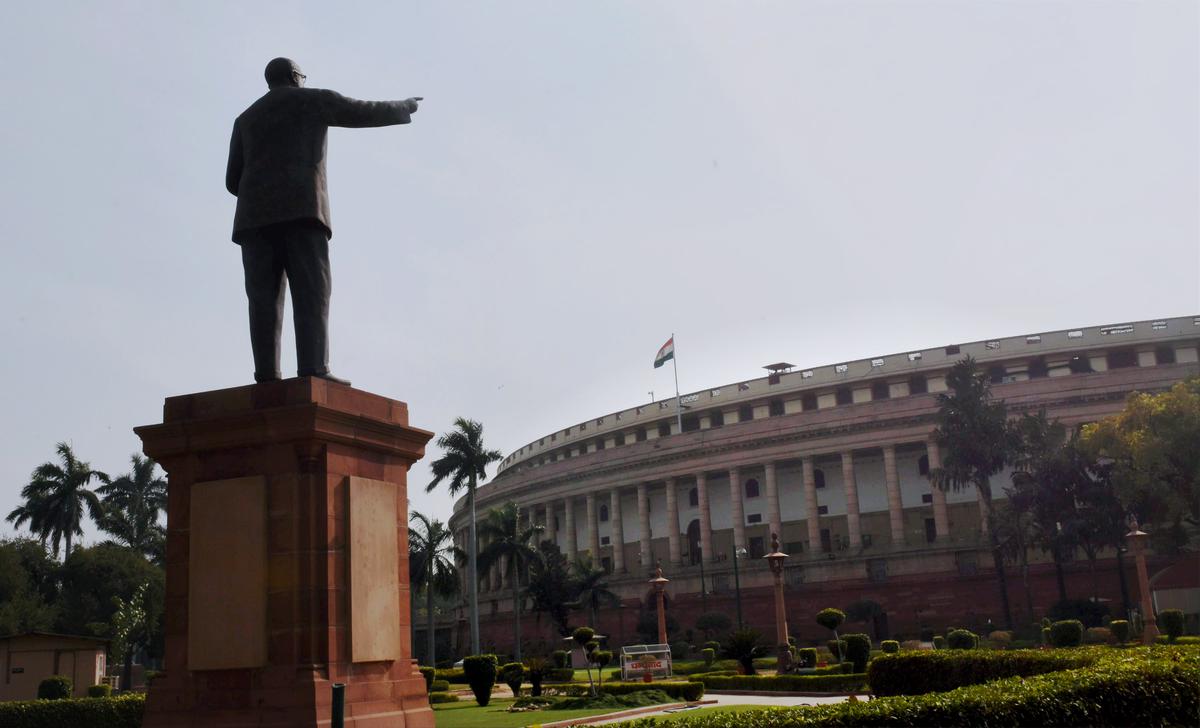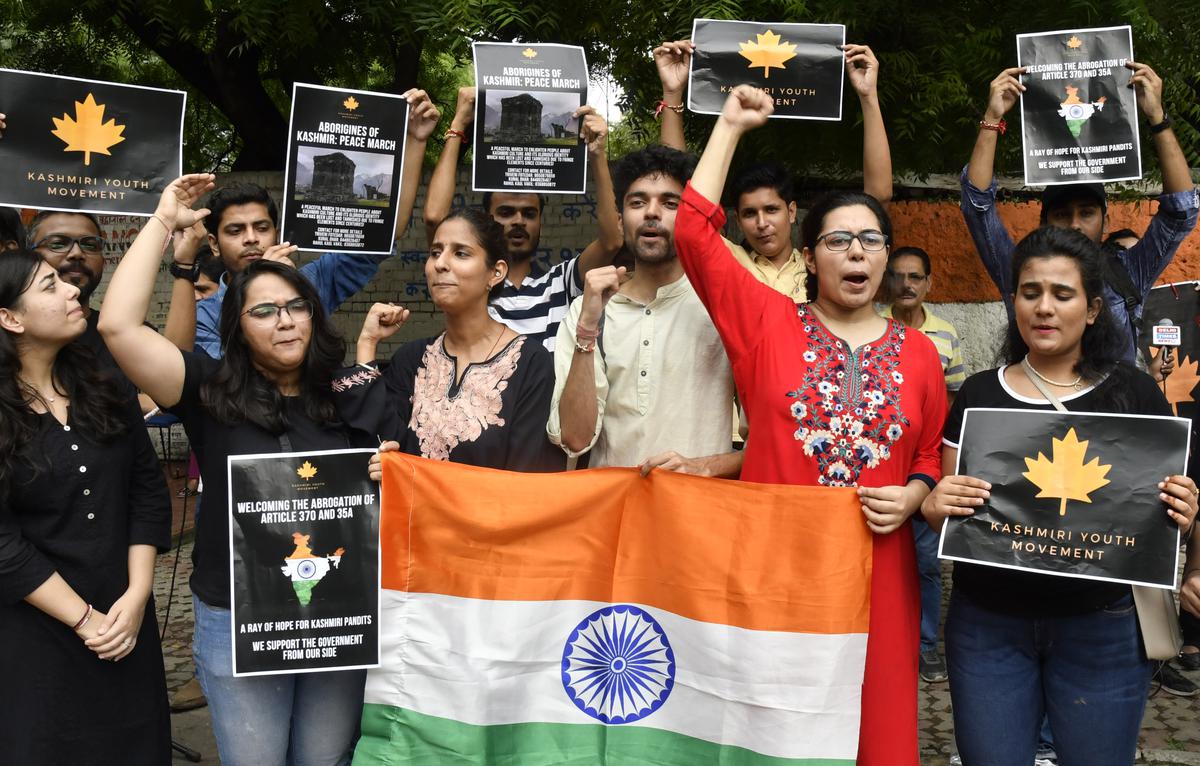Between Hope and Despair: 100 Ethical Reflections on Contemporary India, Rajeev Bhargava, Bloomsbury India, ₹699.
in many essays between hope and despairIn , Rajeev Bhargava takes a troubling contemporary phenomenon and by considering it tries to clarify the meaning of moral and ethical concepts, what is good and what is bad, right and wrong. He also emphasizes the importance of India’s constitutional values and the adverse consequences of undermining them. Professor of Political Theory at Jawaharlal Nehru University. In an interview with Garimela Subramaniam, who took Bhargava’s class, she explained why India’s collective moral identity is under pressure even as there is hope. Edited excerpts:
Your essays help in understanding the Indian political situation in a subtle way. Taking inspiration from the title of your book, perhaps people would like to know from you whether there is more hope or more despair.
I leave that answer to the readers, but I can tell you how I feel about the current situation, what frustrates me. The key concepts by which we make sense of the world, the descriptive-cum-evaluative, are entrenched in our discourse. People use these words – ‘liberty’, ‘justice’, ‘equality’ – in a very cursory, superficial way. One of the reasons I wrote this book was so that the general public could understand the varied, complex, and historically evolving meanings of many of these words, and especially all of these moral and ethical concepts that shape our discourse. are part. Also, over the last 30-40 years, for a variety of reasons, we seem to be losing moral and ethical direction. There are many such things happening in our society, which prevent us from thinking ethically. I believe that after the advent of neoliberalism, a very strong, ugly form of capitalism encourages people to think only of themselves and their desires instead of critically reflecting on those desires.

A view of the Parliament House in New Delhi and a statue of BR Ambedkar, one of the chief architects of the Constitution. , Photo Credit: PTI
Yes. One of your essays on liberalism reminded me of this…
Yes, and it’s in the introduction too. In the era of globalization, liberalism has made people complacent; Personal egoism does not allow the acceptance of other people who have their own life, their own point of view. There is also a vicious kind of communalism, which encourages people to think only in terms of their own community – caste, religious community, even nation. This communal arrogance is equally harmful because it prevents us from properly understanding other groups, other communities, other nations. So there are many reasons for the lack of moral thinking. We also seem to have lost the sense of difference between good and bad, right and wrong which is the core of moral thinking. It is important that we all take ethical thinking more seriously and regain our moral and ethical direction.

What you emphasize is that the Constitution of India has a specific moral perspective embedded in it. It provides a moral framework that should guide us out of this moral quagmire.
Yes. If there is one direction which we all have in common, and which we can call a moral direction, it is found in the Indian Constitution. The Indian Constitution may have been the product of a group of elites, but they came from different regions, religions and political orientations to form a common mind against British imperialism. They developed a general moral and ethical framework, true, it is not absolute or immutable. But at least it’s a good solid point of departure. As a starting point, I would like to tell people that we should examine and reflect upon the basic framework of the Constitution and that morality.
How do you think the constitution can be changed?
The components of the moral vision in the Constitution are open to amendment, but we all have to start with some faith in that document because it represents us all. Even those who were initially excluded have increasingly realized over the years that it offers them an opportunity to get involved. So, let’s start with the document. We can disagree with what they say, we can challenge it, but we should at least start a conversation. You cannot negotiate in a vacuum. You have to start with something where there is some overlap of interests and some common sharing of ethics. Liberty, equality, fraternity, pluralism of goods, moral rights are important elements of this general framework. I think constitutional morality provides that.

Members of the Kashmiri youth movement take out a peace march to abrogate Article 370 in solidarity with Kashmir at Jantar Mantar in New Delhi. , Photo credit: Shiv Kumar Pushpkar
How would you describe the essays?
Each of these essays reflects, in a sense, this overarching vision, even if it does not always do so explicitly. It does this indirectly; There is an explanation of the conceptual and normative structure of our key concepts, the concepts that govern or should govern our collective life. And not only our public and political, but also our personal life. There are about 20-25 essays out of 100 that are about interpersonal ethics and morality, not just public and private ethics.
I turn to several essays on the subject of rights, but I am particularly struck by an essay that compares rights with duties, where you say that the weak have rights, and they must claim them. that they need protection against infringement of these guarantees, and that the powerful have a duty to protect these rights.
The first thing I wanted to make clear through some of these essays is that rights and duties should not be seen in isolation from each other; Every right involves a duty. If I have a right to something, others have a duty to ensure that my right is protected. Discussion on rights is actually a discussion on duties as well.
Another point emerges from this second point. The underlying value in the inter-related system of rights and duties mentioned above is equality. If equality is removed and inequality or hierarchy is introduced, rights and duties are separated and socially distributed differently. In some societies, if a powerful person, such as someone from a higher caste, from the aristocracy, for example a maharaja, has a right, it is the duty of everyone else to ensure that the interests behind that right are met. , he is satisfied, advanced and protected. Now, this is fine for hierarchical societies. So when it is said that we have so far focused too much on rights, and should focus on duties, we are saying that we should go back to a hierarchical society. But this is totally against the egalitarian ethos of our constitution. Yet, because it remains a feature of our social and political reality, it seems plausible to many. In fact, it is music to the ears of many, as they want that inegalitarian society back.
However, there is an important sense in which even in egalitarian societies, some duties are independent of rights. It is pertinent to say here that people should not only pay attention to the rights but also attend to the duties. These are duties which are not attached to rights. For example, when a doctor performs surgery, the patient has a right to his or her full care during the performance of the surgery, but once it is over, he or she has no obligation to attend to the patient. unless there is a medical emergency. , He does not have to play the role of a healer or take care of the mental state of the patient, relieve his anxiety; It is not part of his duty. But it would be great if doctors were able to do the same. Or someone else in his place – the nurses and the rest of the hospital staff – had to be kind and do all the necessary psychiatric treatment. I don’t think it can be whittled down as something that is vested in the patient. But it would be nice to have it as a set of duties for the entire medical team. In that sense, I am also an advocate of duties that are distinct from duties that are directly related to rights.
Underprivileged children of Muzaffarpur district. , Photo Credit: Ranjit Kumar
In an essay, in the context of Muzaffarpur, where systemic failure of public healthcare led to the death of over a hundred children, you make the case for a Charter of Basic Rights. But are they not already enshrined in the fundamental rights and duties in the constitution?
The Supreme Court has tried to make certain fundamental rights a part of our fundamental rights, for example the right to food. I don’t know what they’ve done about the right to clean water or the right to clean air. These are basic needs and hence should be basic rights. However, not all fundamental rights are fundamental. Overall, the right to free speech is fundamental but cannot be considered basic. I want to argue that a component of free speech should be a basic and not just a fundamental right. Consider this: What if the state is not able to provide for your basic needs? You should have the right to complain. It can be expressed privately or publicly in a political forum. I don’t care where it is expressed, but non-fulfillment of basic needs is something that demands expression in some forum or other. And I would consider it a fundamental right along with your economic sustenance and basic security of your life. The right to express my views on any public policy is my fundamental right, but in my view it is not fundamental.
What purpose am I trying to achieve by making a distinction between fundamental and fundamental rights? Non-fulfillment of basic rights needs immediate attention. They have an urgency about them which may lack fundamental rights. When our fundamental rights are violated, we go to court and the process can take a long time. I need to be patient. But when a fundamental right is violated, there is no room for the patient to go through the lengthy process. If I cannot find food or clean water, I must have them immediately. If I don’t get them, then the people responsible for this should be punished immediately, otherwise I may die. Similarly, if I am unable to publicize my inability to obtain food or water, those who fail to provide me with a means to express my grievance must be held immediately accountable. Those governments which allow children to die like in Muzaffarpur, they should be punished immediately. This is not something that should be left to the next election. The officers should be punished immediately for breach of fundamental duty.
I do not understand why the government which has perpetrated a tragedy like Muzaffarpur should not be dismissed. This is the kind of issue or situation that I had in mind when I wanted to make another distinction within the Fundamental Rights on the Fundamental Rights.
The writer is director of strategic initiatives at Egnoshine Technologies.